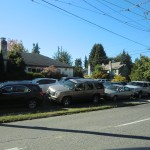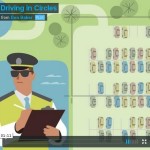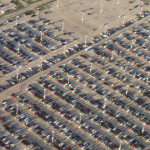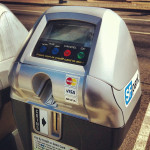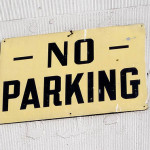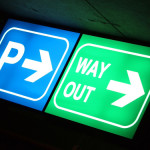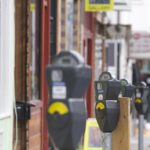Series: Parking? Lots!
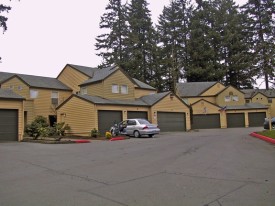
Garages and driveways are the primary entrance to this Tigard, OR apartment complex. Photo credit Brett VA.
Parking rules buried in city land-use codes have surprisingly pernicious effects. Requirements that builders provide ample quotas of off-street parking spaces worsen traffic, multiply collisions, push up housing prices, dampen business profitability, amplify sprawl, and pollute both air and water. Parking rules are a surprisingly potent hidden force shaping—or misshaping—our communities. Fortunately, new approaches and new technologies allow better ways to manage parking, and these better ways turn out to be among the biggest opportunities open to cities for improving residents’ lives.

